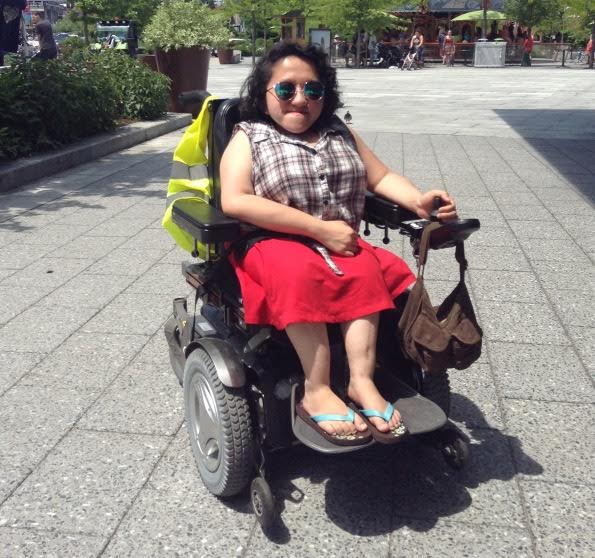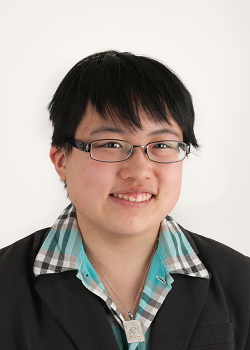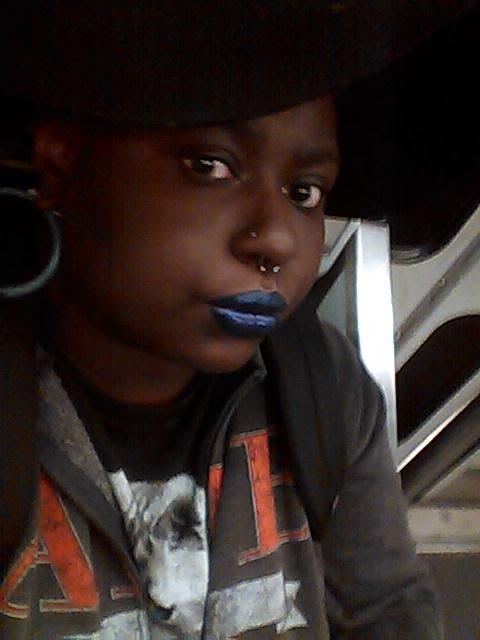Feature image photos by Kelsey Kent
On November 5, I attended the inaugural Disability Intersectionality Summit in Boston from exactly 3012 miles away. The entire day’s worth of presentations — on queer politics, kink, mental health, healing justice in communities of color, and more — arrived in my Los Angeles bedroom live via YouTube. Convenient! But more importantly, the livestream made DIS as close to an honest-to-goodness accessible event as I’ve ever seen. Travel is a tricky proposition for lots of disabled folks (ever had to crawl off a plane because the airline forgot your wheelchair? You’re not alone!). So the move wasn’t just tech friendly; it made a wealth of information available to more people. It ensured the DIS would live up to its name.
When the livestream kicked in, the first thing I saw was a room full of disabled people. Do you realize how rare that is? Think about it. We’re not exactly known for our visibility, whether in media or the physical world. Here’s a fun fact: actual “ugly laws” kept visibly disabled people — especially those who were poor — out of public space in some American cities until the 1970s. The ’70s! You know people who were alive then! So watching a group of disabled folks get together and raise some hell, not surrounded by able-bodied people and not caring whether they liked it, reminded me what my kind of activism looks and feels like.
Of course, everything took on a new tenor three days later. The DIS could not have been more timely now that we’re headed straight for Donald Trump’s dystopian funhouse. The presenters that day, whether they knew it or not, were laying out actionable principles for all of us to use — not just softly acknowledge — in whatever lies ahead. Listen as you build your movements, clarify your priorities, and fight for that future so many of us thought was already here.
Sandy Ho, conference organizer

Figure out who’s missing and turn your focus there.
I began to notice an ugly trend in our news headlines where black disabled people were becoming targets of police violence. I was curious about why this was, was there anything being done about it, and which groups were involved in protesting these acts of violence. But even before then I, like many others, saw TED Talks featuring a disabled speaker. Typically this was someone who was talking to a largely nondisabled audience, and overwhelmingly was white — in the upper echelons of society — and came across disability as a means of either adapting to or overcoming it.
These narratives are valuable and important for us to hear. But they’re overwhelmingly the face of the disability narrative, and it was never one that I or any of my disabled friends could relate to. I could not point to any particular person and say “that’s a life experience similar to mine, and it’s not because we both roll around on four wheels.” So I thought, “what if there was a conference that brought together the other narratives, lived experiences, and the work of disabled people of color, disabled LGBTQ+ individuals, and other oppressed disabled people whose experiences barely register on the media landscape?”
I looked around and recognized who was missing from the conversations on immigration policy, on criminal justice reform, on education, and LGBTQ rights, and other national social policy conversations and thought, “someone better be documenting the people who are missing from this scene.”
Exclusion of disabled people is an active choice, not an oversight.
Disability tends to be left out of discussions of intersectionality because of a lack of exposure, and it really angers me. One in five Americans is disabled — the fact that I still hear “well, I don’t know anyone with a disability who would be interested in working here,” or “sorry, we didn’t make the event accessible” is no longer an oversight but actually discriminatory. Yet it isn’t seen that way, and that’s infuriating.
As a disabled person, I translate that in my mind to “you just chose to not look at my friends and the people in the disability community. You keep us behind that mystery shroud of disability in your mind, and left us there.” The fact that disability gets left out of intersectional discussions having to do with feminism, media, technology, reproductive rights, and sexual orientation is a choice made by the people who are leading these discussions.
And inclusion, especially of disabled people of color, is not a feel-good exercise.
We must be intentional about how we engage with the disabled people of color community. I cannot say this enough because I have been tokenized so often: stop using disabled people of color for their identities, and then making no further effort at engaging after presence of skin color next to a mobility device has been acknowledged. We’re more than just an exotic decor to the backdrop.
As a disabled queer woman of color, who is Asian-American, and a child of immigrants — I think that those who are fortunate enough to find themselves with their hands around the megaphones, or at the helm of an organization, must use their privilege to amplify the voices who are right beside them (or more often than not, boosting them up). We can be in solidarity with our disabled and QPOC community by letting them know that fighting for what’s right includes their bodies and needs.
Lydia X.Z. Brown, presenter, “Disability Justice Intersection with Racial Justice, and Queer/Trans Liberation”

Disability justice can and should guide your activism.
Disability justice is, at its core, a practice of honoring the body. That means actively affirming that every body’s existence is valid, that we all deserve to exist without fear of violence. That different bodies have different capacities and limitations, that our needs are complex and fluid, that everyone occupies multiple categories of identities and experiences. I have only begun to incorporate disability justice as a practice and guiding framework in the last couple of years, and it is so powerful to learn from the wisdom of fellow disabled people of color and queer and trans disabled people.
Evaluate what that activism looks like — and why.
“Perfect” or “pure” politics are ableist, classist, racist, and elitist. Stop practicing disavowal. Stop demanding respectability, compromise, tokenism, half measures, and uncompensated labor. Stop valuing some types of labor (like being in the streets) or contributions (like writing academic articles) over others. Queer disabled people of color are least likely to be part of desirability politics or conference space, and first to be used and abused then discarded and erased. Value our labor and contributions and help meet our material and emotional needs.
Trump’s win is only a reflection of the existing racism, white supremacy, and ableism that has long undergirded U.S. history, and it’s up to us to use the resources we currently have to minimize harm while loving and protecting one another.
A truly intersectional space would be one that allows for imperfections, vulnerability, and flaws. Striving to love and care for one another while practicing accountability without the punitive criminal justice mentality. Centering the most impacted — as I’ve continued to learn from folks like Talila Lewis, Kat Yang Stevens, Mickey Thomas, Lee Lyubov, Mrs. Kerima Çevik, Porpentine, Christian Snow, and many others [Author’s note: look these folks up! I am!] — the kicked out, dropped out, locked up, isolated, discarded, non-speaking, exiled, disconnected, everyone at the margins of the marginal.
Mickey Thomas, presenter, “Whips & Chains Excite Me Too: Kink and Disability”

Recognize what accessibility really means and make it a priority, not a footnote.
One of the major access issues is hosting events inaccessible places and not providing accessibility notes. Sometimes descriptions will mention that places will be accessible, there will be different levels, all that good stuff, but then you realize the public transportation to get there is not accessible. Also, while I do understand confidentiality, for folks who use ParaTransit (MBTA’s The Ride/MTA’s Access a Ride), not giving out more information about location can definitely leave out those folks when they’re in a pinch, especially since you need to tell Paratransit a day or so in advance.
I haven’t experienced completely intersectional spaces as of yet (Disability Intersectionality Summit was one of the first ones where I didn’t feel othered). An ideal space would lay stuff on the table and be near public transportation that has not only elevators but also not-narrow passageways. I would be able to not feel like a fetish or inspiration porn for people who feel like I’ll be part of the “poor, sad cripple” trope. Guess what, I’m poor, I’m sad, I’m crippled but I also can turn up. I can also hook up with people. I also can — gasp — have sex. And this is something very common in these spaces that people don’t seem to realize. Disabled people have autonomy to their own bodies and how we use that autonomy is nobody’s business (unless you will be sleeping with them and have to ask for hard or soft limits).
I’m into some stuff that folks are not into and that’s completely valid as hell.
As someone who is also disabled, it helps me remind myself that my body is amazing and capable of doing things, at my own pace. Obviously not at the same pace as others, but I can definitely make a few people squirm and cry — just with a lot of help. I am comfortable with my sexuality because people don’t want me to be.
Read through #intersectionalcrips, #cripthevote, and this Storify about the election and what’s coming for disabled folks in the Trump era. It’s a lot right now — believe me, I’m there too — but it’s also time to get smarter. As Heather Watkins said in her DIS keynote address, “discomfort is an indicator of beliefs that need to be dislodged.” So once you’re uncomfortable, make intersectional crips your chosen experts. We know how to fight back because we do it all the time; it’s necessary in a world built for someone else’s body. The Disability Intersectionality Summit affirmed that we are, have always been, and will continue to be here. That presence counts for more than ever now.
And nobody tell Trump about ugly laws, okay? I don’t want him getting any ideas.








Comments
thanks, carrie
I always love your pieces, Carrie. Thank you for introducing me to some great people and resources!
Thank you so much for this article, Carrie – off to go and look up all the people mentioned here.
Thanks, as always, Carrie! I wish I had known about this to be able to virtually attend, but reading about it today is just what I needed.
I am sooooooooooo bummed I missed the DIS as I would really have loved to have been there. Thanks for this amazing write up!